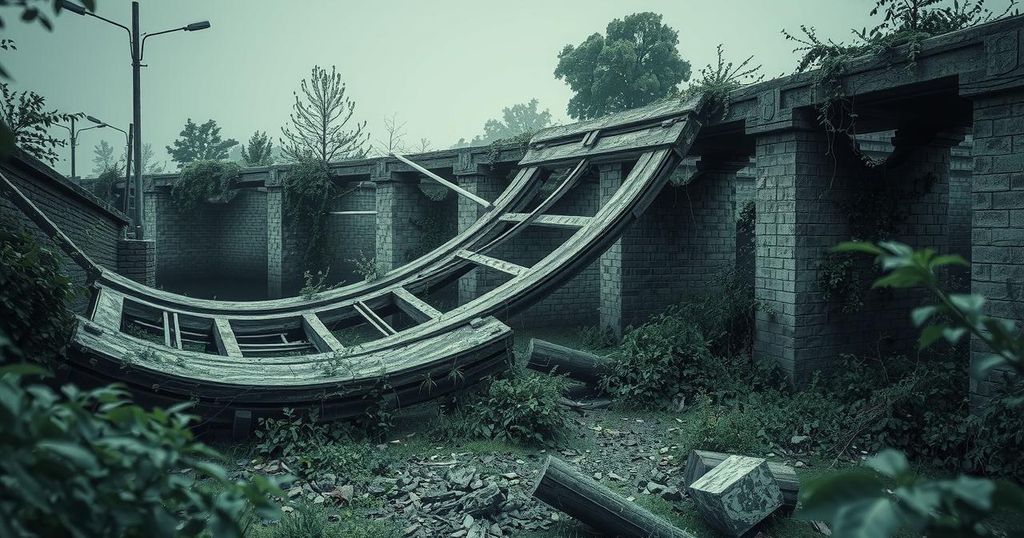The M23 rebels’ advance in Goma, DRC, has led to widespread devastation, exemplified by the experiences of thirteen-year-old Heshima, who lost his parents. The rebels, allegedly supported by Rwanda, have captured significant territory, exacerbating a humanitarian crisis marked by overwhelming casualties and human rights violations. As local communities face eviction from refugee camps, fears of instability and hunger loom large.
Thirteen-year-old Heshima, injured and grieving, is a symbol of the tragic consequences of the M23 rebels’ advances in Goma, Democratic Republic of Congo (DRC). He now resides in an overcrowded hospital where he is recovering from the severe injuries inflicted during the conflict that has claimed the lives of his parents. Tantine, a relative, recounts the devastating day when fighting erupted between the M23 rebels, who are purportedly supported by Rwanda, and the Congolese army (FARDC).
The M23 rebels, identifying themselves as harbingers of peace and order, have made substantial territorial gains since early 2022, asserting control over significant areas, including Goma. The United Nations reports that up to 4,000 Rwandan troops may be collaborating with the M23, a claim that the Rwandan government denies. Such developments have resulted in an escalating humanitarian crisis, particularly at Ndosho Hospital, where medical staff are overwhelmed with casualties.
The hospital, at the center of the conflict’s toll, struggles with a backlog of patients following the M23’s incursion. Medical personnel have been operating tirelessly, often sleeping in the operating rooms, and faced significant challenges after their supplies were looted. Currently, the admissions have decreased, but the situation remains critical as many seek to resume a semblance of normal life amidst ongoing uncertainty.
While daily life in Goma appears to continue with open shops and bustling streets, the underlying tension is palpable as the M23 exercises control without a visible military presence. Community members express both hope and trepidation; some remain cautious, wary of potential reprisals from the new rulers. The fear of the unknown lingers as many feel compelled to self-censor their expressions.
Willy Manzi, a newly appointed M23 vice governor, promises peace, security, and development through social media, contradicting the feelings of anxiety among thousands displaced from their homes. The M23’s ultimatum to evacuate refugee camps has exacerbated fears, leaving many uncertain about their future amid severe hunger and loss.
Divine, a displaced woman, recounts the fears of her fellow camp residents who face eviction without any means to return home. Human rights organizations have raised alarm over the M23’s pattern of human rights abuses, echoing similar accusations against the Congolese army. The conflict’s roots can be traced back to the historical tensions following the 1994 Rwandan genocide, with ongoing concerns regarding control over DRC’s mineral wealth.
As individuals like Alphonsine prepare to return to their devastated homes, the uncertainty of survival looms large. Their journeys symbolize the despair faced by many in conflict-ridden areas, underscoring the dire need for stability and support to rebuild their lives after the upheaval.
The ongoing conflict in Goma has left families like Heshima’s shattered, showcasing the dire humanitarian crisis stemming from the M23 rebels’ actions. The situation reflects a complex intersection of historical tensions, regional power struggles, and the quest for control over valuable resources. As communities navigate uncertainty and fear, the imperative for peace and security remains urgent. The resilience of those affected is overshadowed by the grim realities of displacement and loss, emphasizing the need for continued support and intervention.
Original Source: www.bbc.com




